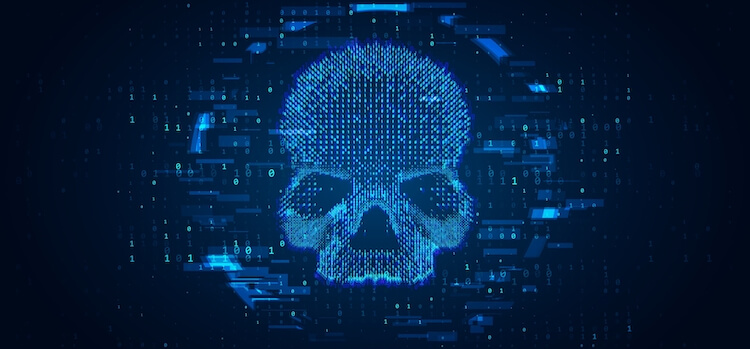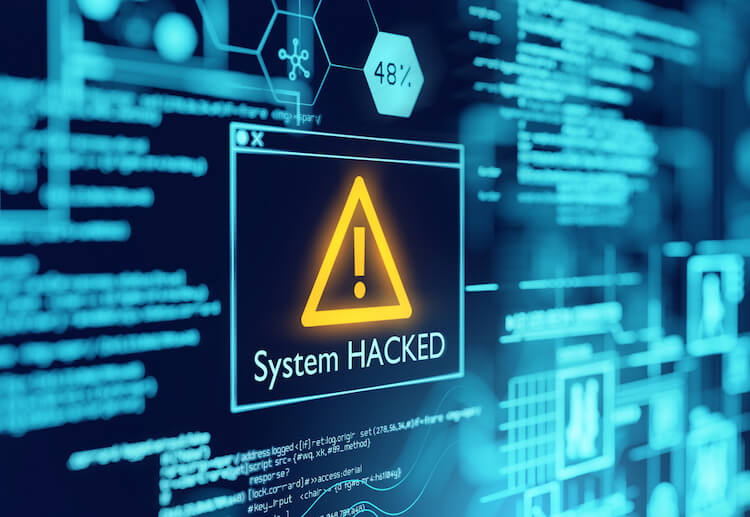Why cyber safety should be a top priority for your business: protecting your assets and reputation

Cybercriminals are getting smarter. Are you aware of all the vulnerabilities in your organisation? If not, your business could be at risk of a cyber attack. Let's dig into what threats you're facing, how to protect your team's online activities, and just why cyber safety is so important.
Why is cyber safety important?
- Businesses face significant financial losses as a result of a security breach.
- Cyber threats are evolving rapidly, outstripping the capacity of security systems.
- Some common cyber attacks include ransomware attacks, social engineering, Man in the Middle (MITM) attacks and malware. These come in different forms, delivered in different ways, making them hard to detect.
- Most cyber threats rely on human error to breach your security, making your team vulnerable.
- Business owners also need to improve their cyber safety to meet cyber security compliance standards.
- It's a good idea to improve your cyber security and invest in the right tools to stay safe.
- A critical part of this is team training to prevent security breaches that take advantage of people's trust.
What is cyber security and why it matters
In today's digital world, as information technology evolves, so do cyber threats. Businesses are up against data breaches, identity theft, loss of sensitive data and more. Basic security systems are no longer enough. And the fallout of these cyber attacks can be deadly for an organisation.
That's where cyber security comes in. With internet safety policies and cyber safety education for your team, you can take proactive steps to protect yourself. This falls into four key areas:
- Assessing your risks and vulnerabilities
- Creating a comprehensive information technology policy
- Training your team on cyber best practices
- Equipping your business with cyber safety tools

What happens when businesses lack cyber safety?
Cybercriminals are after your business' sensitive information. And they're pretty good at getting it. Unauthorised access and data breaches can create serious trouble for organisations. Some of the problems you could face include:
- Reputational damage as customers lose faith in your information security capacity
- Legal troubles over data breaches and the personal data that is stolen
- Financial losses from disrupted work and downtime
- Further cyber attacks as you become a known target to cybercriminals
- Loss of partners, stakeholders and investors after your risk increases from a security breach
- Increased cyber insurance costs when insurers see that you have already been attacked
And so much more. The aftermath of cyber security threats can cost significantly more than what it takes to get secure.
The cyber threats lurking in the digital world
We're seeing new kinds of cyber threats all the time. It's important to stay up to date as digital technologies evolve, so you know what you're dealing with. There are a few common, almost formulaic attacks that cybercriminals use. You may end up facing some variation of one or more of these.
-
Ransomware attacks
Your computer systems, sensitive data and computer network are locked down, completely inaccessible. That's the reality of ransomware attacks. Cybercriminals infect your connected devices with malicious software that encrypts all your files. They'll demand payment to open access, but paying the ransom doesn't guarantee anything. It also doesn't stop you from being attacked in the future. -
Social engineering attacks
Cybercriminals use social engineering to manipulate people into giving up sensitive information. Attacks exploit human weaknesses such as blind trust, greed or fear. These attacks can seem like legitimate requests, making them hard to detect. They often take the form of apparently harmless activities like emails, phone calls, or websites. -
Man-in-the-middle (MITM attacks)
These cyber attacks are especially harmful as they often happen without anyone realising. Cybercriminals intercept exchanges between two parties to steal sensitive information. For example, between your business website and a customer's browser. They could be after anything from credit card details to other business or personal data. -
Phishing attacks
Phishing is actually a form of social engineering that targets individual users across a company. These attacks are delivered as emails or texts from a seemingly trusted source like a bank or supplier. Cybercriminals then trick employees into providing information or clicking on malicious links. A variation of this is spear phishing - personally identifiable information about an employee is used for a highly targeted attack. This personal information can be sourced anywhere, including your business' social media. -
Malware
Short for malicious software, malware is used in a cyber attack to gain access to computer systems and bypass network security. It takes many forms, including viruses, worms and Trojans. Once malware is in the system, it can wreak havoc in countless ways, such as spreading to connected devices, stealing sensitive data, causing a security breach for someone else on a shared network, and more. -
SQL injections
This form of cyber attack uses malicious code to exploit vulnerabilities in a website's database. Cybercriminals then gain access to sensitive information or make unauthorised changes to the database. SQL injections can steal customer data, such as usernames and passwords, to manipulate data to commit fraud. -
Denial-of-service attacks (DoS)
DoS cyber attacks flood websites or computer systems with traffic, overwhelming their capacity. DoS attacks can disrupt business operations and prevent customers from accessing services. They're also used to extort money by threatening to continue the attack.

Beyond cyber safety issues to cyber security compliance
Don’t underestimate the importance of cyber safety - it's not just cyber attacks you need to be wary of.
The other piece of the puzzle is compliance. The government sets regulations for businesses to protect sensitive information and prevent cyber attacks. Failing to comply can result in significant fines and legal consequences.
In Australia, there are a number of cyber security regulations and standards. This includes the Australian Cyber Security Centre's Essential Eight, the Notifiable Data Breaches scheme, and the Privacy Act 1988. Invest in cyber safety education that covers compliance and regulations so your team meets these standards.
Best practices for robust cyber security
We've established that the importance of cyber security cannot be understated. So, what can you do about it? Luckily, there are quite a few best practices you can lean on here. Here are our top tips:
- Ensure a high level of privacy settings are configured to cover all of your team's online activities
- Set up multi-factor authentication on all online accounts and devices to secure passwords
- Invest in robust security systems and then train your team on using them effectively
- Update your company's information security policies and privacy policies regularly
- Review your use of cloud services to identify gaps in security there
- Set clear access levels to sensitive data throughout the organisation. This limits the number of people who can access certain things
- Back up all important data and store it securely
- Ensure the business' sensitive information isn't accessed on unsecured networks like public Wi-Fi
- Develop an incident response plan in case of a cyber attack or data breach.
- And above all, educate your team on cyber safety and cyber attack prevention
Cyber safety training: an essential investment for businesses
The majority of cyber security threats happen as a result of human error. And that kind of makes sense. Looking at ransomware attacks and social engineering, you see how employees can be vulnerable. That's why it's a good idea to invest in your team's cyber security training.
So, what do your employees need to know? To be frank, the more equipped they are, the better your chances. However, there are some basic principles they should be across:
- Basic password security, relating to creation and storage
- Phishing attack indicators and how to prevent them
- Safe website and software usage
- Physical elements of cyber security
- Malware attack prevention
- Ransomware attack prevention
- Social media security best practices
- Social engineering attack prevention
- Cyber security compliance requirements
- Creating and following a cyber security incident response plan
Are you at risk of a cyber attack?
Boosting your cyber safety is both critical and complex. From assessing your gaps to updating policies and training your team, there's a lot of ground to cover. Fortunately, you don't have to do it alone. Lean on cyber security professionals like CyberSafe to help you assess your risk and beef up your security. Contact us today to explore your options!




